Activism
Tenants of one of Oakland’s Biggest Evictors are Organizing
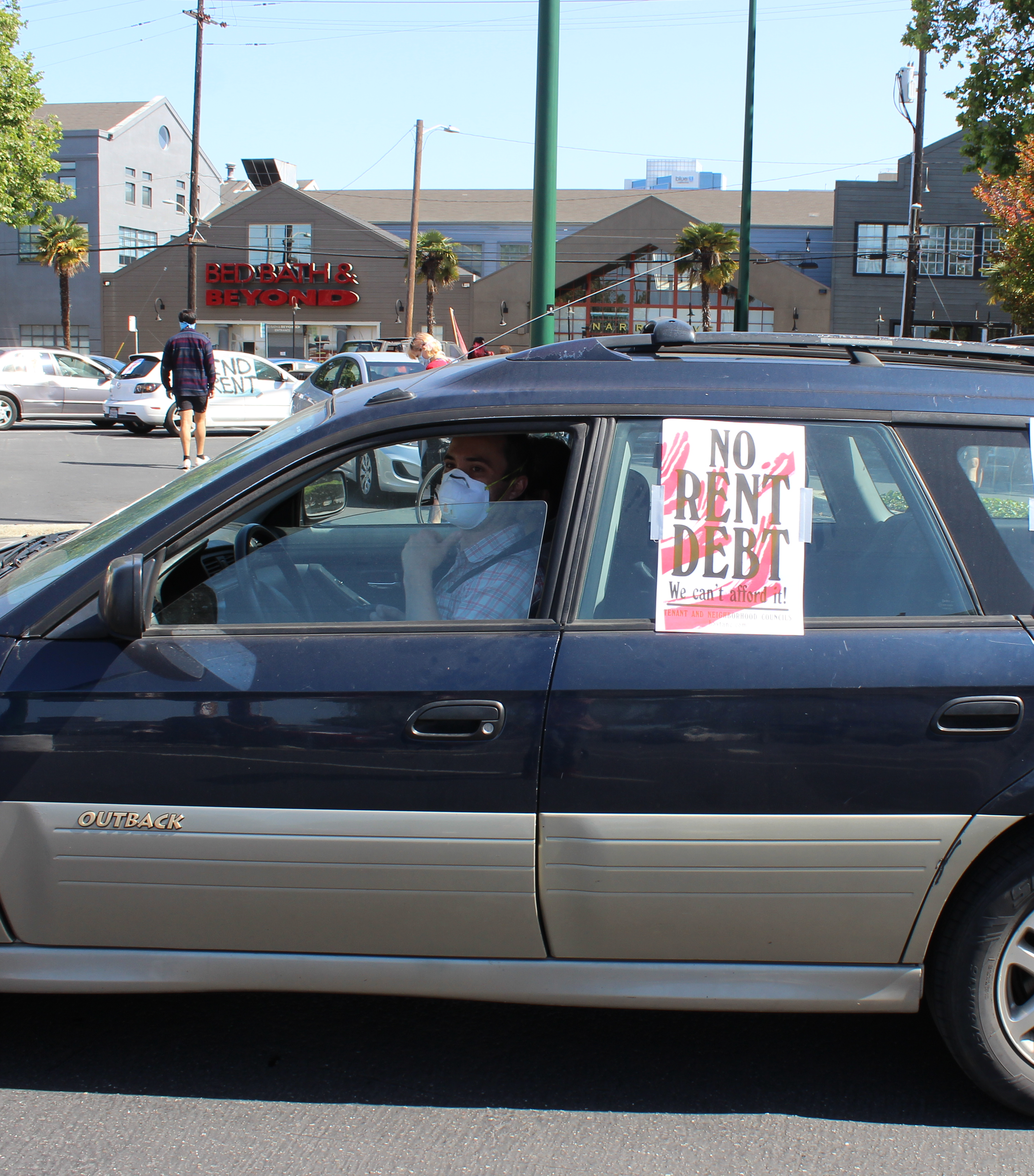
Tenants who rent from Sullivan Management Company (SMC) East Bay, have founded the SMC Tenants Council, unifying to make collective demands including that the company cancel debt of back rent that’s owed during the COVID-19 pandemic.
“We’re putting together all of us so if they touch one of us they have to touch all of us,” said Xavier T. de Janon, an SMC tenant, council member, and the group’s media spokesperson.
Although de Janon would not reveal precisely how many members the SMC tenant council currently has due to concern for retaliation, he said they spent over 100$ on mailers which they used to contact hundreds of SMC tenants, many who joined the council.
“There’s enough of us that we feel confident that there’s a critical mass. If we were to act together, it would affect SMC’s bottom line,” said de Janon.
In 2014, The East Bay Express reported that SMC East Bay’s owner, Neill Sullivan, started buying hundreds of properties, mostly in West Oakland, in the wake of the 2008 recession. The recession and housing market collapse allowed Sullivan to purchase the properties at about half of what the previous owners had paid. Billionaires and/or hedge fund investors provided needed capital for Sullivan’s investments, including former presidential candidate Thomas Steyer.
The Anti-Eviction Mapping Project reports Sullivan has purchased at least 356 properties and served at least 357 eviction notices from 2011 to 2016, making him the 12th biggest evictor in Oakland at that time. But it’s difficult to know exactly how many properties Sullivan has or how many eviction notices he’s served since he is associated with at least a dozen companies and LLCs.
The Oakland Post emailed SMC East Bay and asked how many properties Sullivan owns and if we could speak with him, but SMC East Bay responded with an unsigned response that did not answer those questions.
“They have too many properties to have proper oversight and a lot of their tenants are suffering,” said an SMC tenant and council member who asked not to be named for fear of retaliation.
The tenant says while her rent is affordable, her building is neglected and looks dilapidated to the extent that “people think it’s abandoned.” Inside, her place has a ceiling leak that previous tenants made a formal complaint about over three years ago and still hasn’t been fixed. The place is filled with rats and mold which affects her health as the mold harms her lungs and the rats bring fleas that bite her. Termites have eaten much of the wood in the home and the tenant is concerned about what would happen if an earthquake struck.
Over half of active SMC Tenant Council members say they were unable to afford to pay rent due to the COVID-19 crisis. De Janon says expenses related to his family increased drastically while his income level remained the same. On May 1, SMC Tenant Council collectively sent an email and a physical letter with demands that would allow him and other SMC tenants to be able to afford to stay in their homes: canceling rent owed during the pandemic, a rent reduction for the rest of this year, and allowing lease transfers to be available to subtenants.
Neither SMC East Bay nor Sullivan responded directly to the email or the letter but instead, the company individually emailed tenants the same response. The email outlines services, some already running, some planned, that SMC East Bay says it provides to Oaklanders including a martial arts program, a community garden after school arts programs, and a gift card program for residents who are having difficulties affording groceries.
While the last two paragraphs of the nine paragraph email directly address housing affordability and the COVID-19 crisis and confirm that SMC East Bay intends to obey a City of Oakland emergency ordinance which currently prevents eviction, it makes no mention of the SMC Tenant Council, rent forgiveness, or any of the council’s demands.
“We will work with you to discuss your financial difficulties…however, if you do not pay rent and don’t notify us that you have been affected by the coronavirus pandemic, we will assume you have not been directly impacted and your current lease is in full effect,” reads the email.
The email also states “for those affected by the pandemic, there are a variety of governmental and third-party resources,” insists “these organizations are not affiliated with SMC East Bay,” then lists charitable organizations that could help people pay rent.
“I think the way [SMC East Bay] responded to us shows the idea that they can be great to the community in theory, but our individual lives don’t really matter,” said de Janon.
De Janon also says SMC East Bay has asked to see his personal financial information, but after talking with lawyers, he concluded he wasn’t legally obligated to.
SMC East Bay did respond to one of The Oakland Post’s emailed questions which asked if they recognized SMC Tenant Council. SMC East Bay emailed back and stated: “While tenants are free to organize in any manner that they deem appropriate, we will continue our historic practice of responding to individual tenant requests on a case-by-case basis—which we believe is fair, smart and consistent with best industry practice.”
SMC Tenants Council is currently exploring the legal protections that forming a tenant council could provide them and seeking out new SMC tenants to join them. Those interested can check out their Facebook, Twitter, and Instagram pages, email them directly at smctenantscouncil@gmail.com
Activism
Oakland Post: Week of April 17 – 23, 2024
The printed Weekly Edition of the Oakland Post: Week of April 17 – 23, 2024

To enlarge your view of this issue, use the slider, magnifying glass icon or full page icon in the lower right corner of the browser window. ![]()
Activism
Oakland Schools Honor Fred Korematsu Day of Civil Liberties
Every Jan. 30, OUSD commemorates the legacy of Fred Korematsu, an Oakland native, a Castlemont High School graduate, and a national symbol of resistance, resilience, and justice. His defiant stand against racial injustice and his unwavering commitment to civil rights continue to inspire the local community and the nation. Tuesday was “Fred Korematsu Day of Civil Liberties and the Constitution” in the state of California and a growing number of states across the country.

By Post Staff
Every Jan. 30, OUSD commemorates the legacy of Fred Korematsu, an Oakland native, a Castlemont High School graduate, and a national symbol of resistance, resilience, and justice.
His defiant stand against racial injustice and his unwavering commitment to civil rights continue to inspire the local community and the nation. Tuesday was “Fred Korematsu Day of Civil Liberties and the Constitution” in the state of California and a growing number of states across the country.
One OUSD school is named in his honor: Fred T. Korematsu Discovery Academy (KDA) elementary in East Oakland.
Several years ago, founding KDA Principal Charles Wilson, in a video interview with anti-hate organization “Not In Our Town,” said, “We chose the name Fred Korematsu because we really felt like the attributes that he showed in his work are things that the children need to learn … that common people can stand up and make differences in a large number of people’s lives.”
Fred Korematsu was born in Oakland on Jan. 30, 1919. His parents ran a floral nursery business, and his upbringing in Oakland shaped his worldview. His belief in the importance of standing up for your rights and the rights of others, regardless of race or background, was the foundation for his activism against racial prejudice and for the rights of Japanese Americans during World War II.
At the start of the war, Korematsu was turned away from enlisting in the National Guard and the Coast Guard because of his race. He trained as a welder, working at the docks in Oakland, but was fired after the bombing of Pearl Harbor in 1941. Fear and prejudice led to federal Executive Order 9066, which forced more than 120,000 Japanese Americans out of their homes and neighborhoods and into remote internment camps.
The 23-year-old Korematsu resisted the order. He underwent cosmetic surgery and assumed a false identity, choosing freedom over unjust imprisonment. His later arrest and conviction sparked a legal battle that would challenge the foundation of civil liberties in America.
Korematsu’s fight culminated in the Supreme Court’s initial ruling against him in 1944. He spent years in a Utah internment camp with his family, followed by time living in Salt Lake City where he was dogged by racism.
In 1976, President Gerald Ford overturned Executive Order 9066. Seven years later, the 9th Circuit Court of Appeals in San Francisco vacated Korematsu’s conviction. He said in court, “I would like to see the government admit that they were wrong and do something about it so this will never happen again to any American citizen of any race, creed, or color.”
Korematsu’s dedication and determination established him as a national icon of civil rights and social justice. He advocated for justice with Rosa Parks. In 1998, President Bill Clinton gave him the Presidential Medal of Freedom saying, “In the long history of our country’s constant search for justice, some names of ordinary citizens stand for millions of souls … To that distinguished list, today we add the name of Fred Korematsu.”
After Sept. 11, 2001, Korematsu spoke out against hatred and discrimination, saying what happened to Japanese Americans should not happen to people of Middle Eastern descent.
Korematsu’s roots in Oakland and his education in OUSD are a source of great pride for the city, according to the school district. His most famous quote, which is on the Korematsu elementary school mural, is as relevant now as ever, “If you have the feeling that something is wrong, don’t be afraid to speak up.”
Activism
WOMEN IMPACTING THE CHURCH AND COMMUNITY
Juanita Matthews, better known as “Sister Teacher,” is a walking Bible scholar. She moved to California from the great state of Arkansas in 1971. Sister Teacher has a passion for teaching. She has been a member of Bible Fellowship Missionary Baptist Church since 1971.

Sister Juanita Matthews
55 Years with Oakland Public School District
The Teacher, Mother, Community Outreach Champion, And Child of God
Juanita Matthews, better known as “Sister Teacher,” is a walking Bible scholar. She moved to California from the great state of Arkansas in 1971. Sister Teacher has a passion for teaching. She has been a member of Bible Fellowship Missionary Baptist Church since 1971. She followed her passion for teaching, and in 1977 became the lead teacher for Adult Class #6. Her motto still today is “Once My Student, Always My Student”.
Beyond her remarkable love for the Lord, Sister Teacher has showcased her love for teaching by working for the Oakland Unified School District for 55 years, all but four of those years spent at Emerson Elementary and Child Development School. She truly cares about her students, making sure they have the tools/supplies needed to learn either at OUSD or Bible Fellowship Missionary Baptist Church.
She’s also had a “Clothes Closet Ministry” for 51 years, making sure her students have sufficient clothing for school. The Clothes Closet Ministry extends past her students, she has been clothing the community for over 50 years as well. She loves the Lord and is a servant on a mission. She is a loving mother to two beautiful children, Sandra and Andre. This is the impact this woman of God has on her church and the community.
-

 Activism4 weeks ago
Activism4 weeks agoOakland Post: Week of March 27 – April 2, 2024
-

 #NNPA BlackPress4 weeks ago
#NNPA BlackPress4 weeks agoCOMMENTARY: D.C. Crime Bill Fails to Address Root Causes of Violence and Incarceration
-

 #NNPA BlackPress4 weeks ago
#NNPA BlackPress4 weeks agoFrom Raids to Revelations: The Dark Turn in Sean ‘Diddy’ Combs’ Saga
-

 #NNPA BlackPress4 weeks ago
#NNPA BlackPress4 weeks agoMayor, City Council President React to May 31 Closing of Birmingham-Southern College
-

 #NNPA BlackPress4 weeks ago
#NNPA BlackPress4 weeks agoBeloved Actor and Activist Louis Cameron Gossett Jr. Dies at 87
-

 Community1 week ago
Community1 week agoFinancial Assistance Bill for Descendants of Enslaved Persons to Help Them Purchase, Own, or Maintain a Home
-

 Activism3 weeks ago
Activism3 weeks agoOakland Post: Week of April 3 – 6, 2024
-

 Business1 week ago
Business1 week agoV.P. Kamala Harris: Americans With Criminal Records Will Soon Be Eligible for SBA Loans


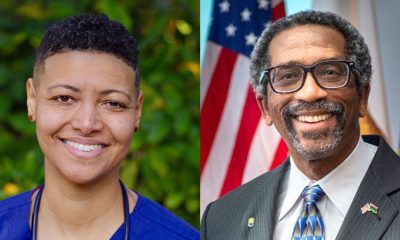

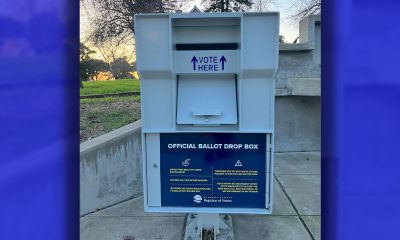

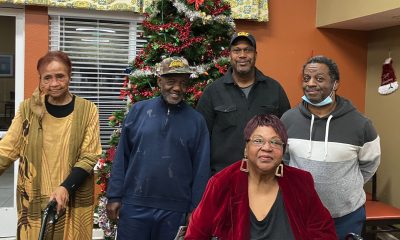

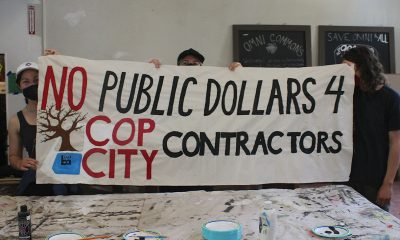



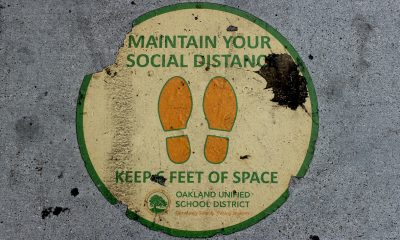












































Pingback: Tenants of one of Oakland's Biggest Evictors are Organizing
Pingback: Fourth Street East Tenants on Partial Rent Strike Against Carmel Partners | Post News Group